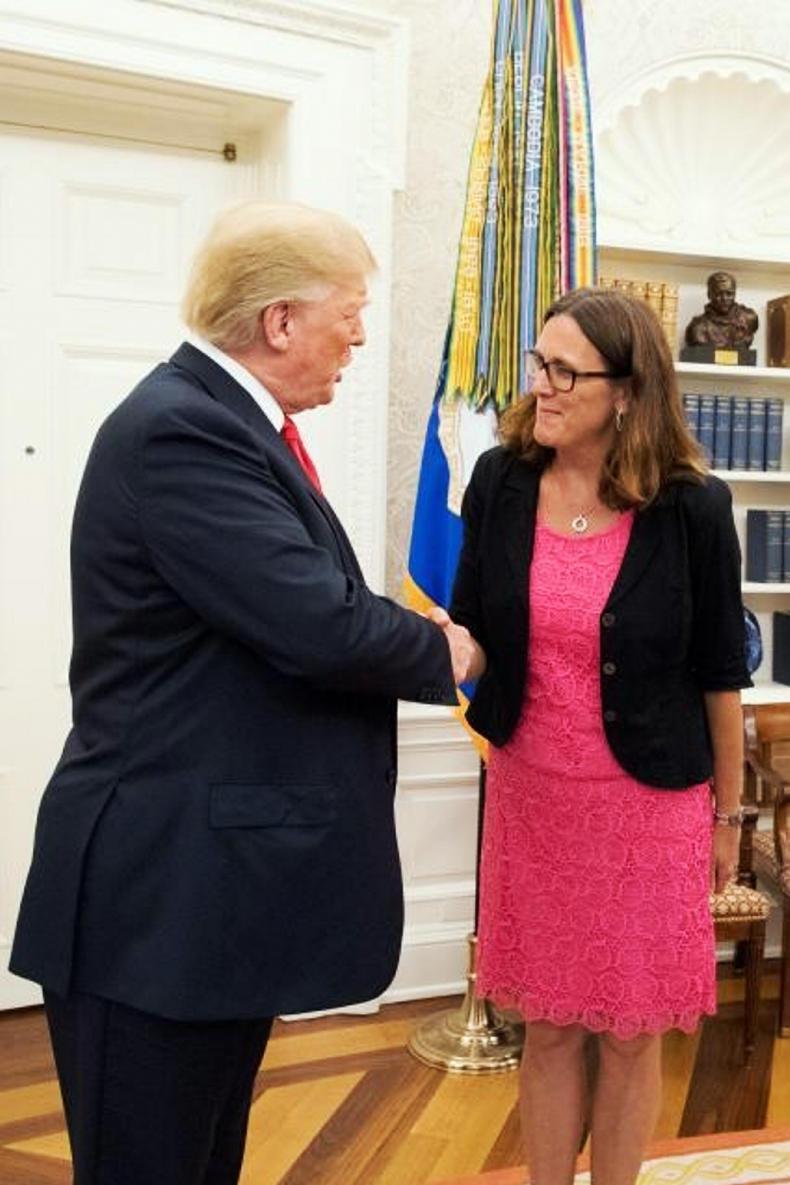US president Donald Trump stopped off in Ireland this week having already completed a state visit to the UK and before going on to attend the 75th anniversary events to mark the Normandy landings. As always with the US president, his Twitter account was active and as well as dismissing the London mayor, he again emphasised his desire to have a trade deal with the UK when it departs the EU.
That, of course, is one of the post-Brexit conflicts that could develop between the UK and EU. While the EU has managed to exclude agriculture from ongoing negotiations with the US, there is no way that the US would engage with the UK with agriculture off the table.
The UK insists that there will be no compromise of existing standards on leaving the EU
There will also be the question on production standards, with the US likely to stand firm in defending the use of chlorine to wash beef and chicken, as well as using growth-promoting hormones in beef production.
The UK insists that there will be no compromise of existing standards on leaving the EU but it remains to be seen how rigid this position is in the desire to close a major trade deal post-Brexit.
Irish trade with the US
The Irish trading relationship with the US is framed within the wider EU relationship. This is at best cool and threatens to spill out into another front in the president’s trade wars. The aircraft industry – with the US’s Boeing and the EU’s Airbus – is the vanguard of the dispute, with each side accusing the other of subsidy.
Dairy is the big Irish agricultural export to the US and is particularly vulnerable in any trade spat
So far, trade conflict has been averted with a trade negotiation initiated in place of the stalled TTIP negotiations with agriculture excluded. This is not what the US wants though. It has had the benefit of huge soya sales to the EU following the imposition of retaliatory tariffs by the Chinese. These effectively exclude the US from selling soya to China, and with Brazil switching its exports from the EU to China, US soya has replaced Brazilian soya in Europe.
Dairy is the big Irish agricultural export to the US and is particularly vulnerable in any trade spat that might develop between the US and the EU.
The EU has a huge trade surplus in dairy in trade with the US, a large portion of which comes from Ireland. Irish beef sales have also increased to 1,790t in 2019 up to the last week of May which, though still relatively low, is 75% more than for the same period in 2018.
China
If China is the trade nemesis for President Trump, it is a market that Irish beef exporters are anxious to further develop. Pigmeat and dairy produce from Ireland and the rest of the EU is already well established in China. With seven Irish factories approved and another 12 due for inspection in August, the slow but steady process of developing that market is ongoing.
Chinese inspectors were due in the north this week on a plant inspection mission
However, Ireland’s position as the leading EU nation in developing the Chinese market for beef could be about to be usurped by the UK. Chinese inspectors were due in the north this week on a plant inspection mission and the view is that if this is successful, it may act as an approval for the entire UK, with the Food Standards Agency authorised to conduct future factory inspections rather than by the Chinese sending their own inspectors. This is a departure from the model used for Irish inspections, where factories south of the border have to wait to have the inspection process carried out by the Chinese.
In fact, when Minister for Agriculture Michael Creed travelled to China at the beginning of May, it had been hoped that Irish authorities would be given clearance to do the Chinese inspections, but it didn’t happen.
BSE in Brazil
In another twist involving China this week, Brazil – its biggest supplier of imported beef – has suspended exports following the discovery of a BSE case in a 17-year-old cow.
This will add to China’s meat supply problem caused by the spread of African swine fever in the pig herd. Such is the extent of the pigmeat deficit, there is a surge in demand for other meats as well and with Brazil supplying over 300,000t of beef annually, this is a supply line that both parties will want to restore quickly.






 This is a subscriber-only article
This is a subscriber-only article










SHARING OPTIONS: